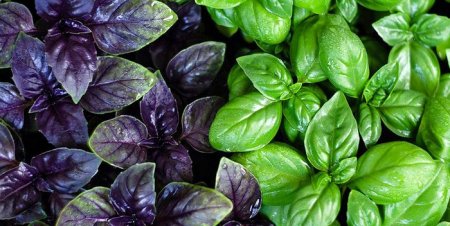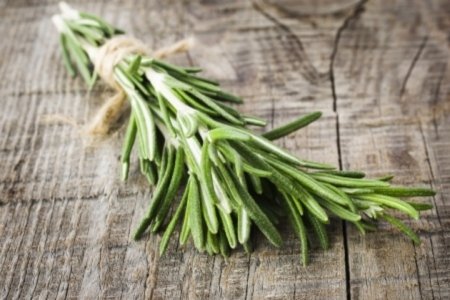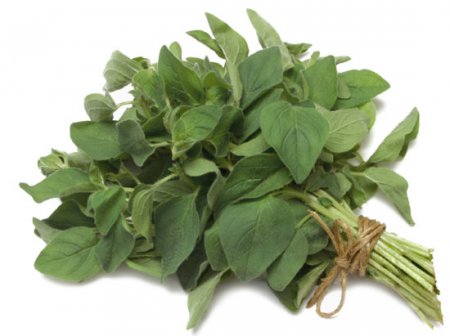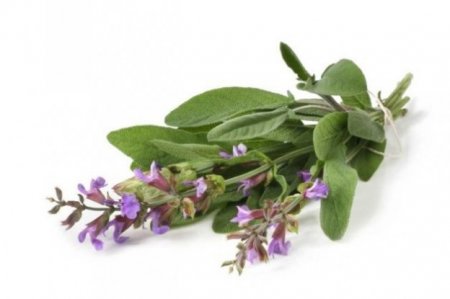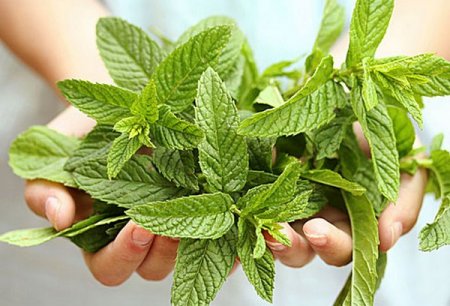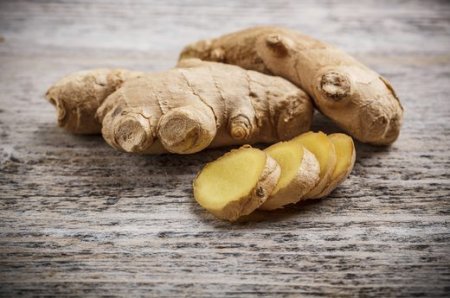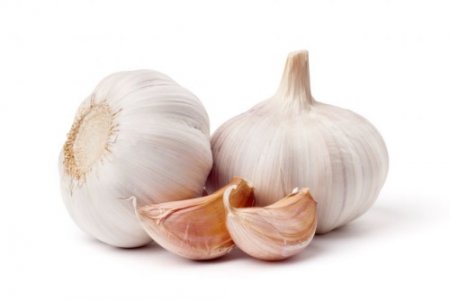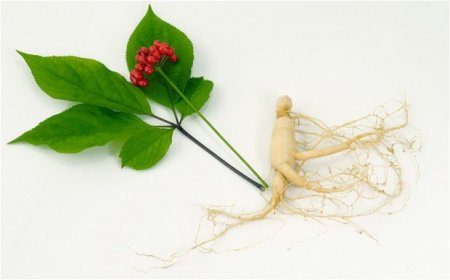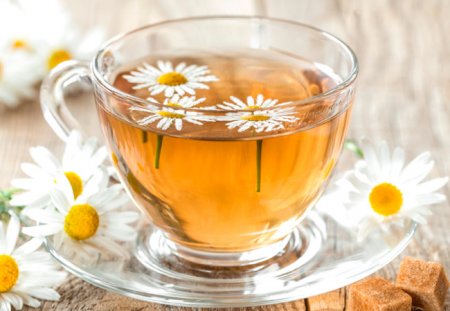10 Best Herbs that Improve Your Health
Herbs are used in different cuisines to add flavor to a dish without calories. At the same time, herbs provide many health benefits.
In fact, herbal medicine has been used for thousands of years to treat different ailments. The healing and restorative powers of various herbs are pretty impressive and well recognized by experts.
Today, modern science is beginning to uncover the ultimate medicinal power of different herbs as effective weapons against illnesses from common health problems to cancer. This is why herbs, both fresh and dried, are readily available in the market.
Some popular herbs are also available in capsule, oil or extract form.
1. Basil
This highly fragrant herb is highly beneficial for your health.
Holy basil has antioxidant, antiseptic, anti-inflammatory and antibacterial properties.
Basil is effective at reducing stress by regulating serotonin levels which affect your mood. By keeping stress under control, basil benefits your health in many ways.
Drinking tea made from basil leaves can relieve indigestion, fight headaches, inhibit breast cancer, treat flatulence, improve appetite, heal cuts and scrapes, boost immunity, treat the common cold and cough, and lots more.
You can use this herb as a seasoning in cooking, or chew 10 to 12 leaves on an empty stomach. You can also drink basil tea 2 or 3 times daily for better health. To make the tea:
1. Put 10 to 15 fresh basil leaves in a large cup or jar.
2. Pour 2 cups of boiling water over the leaves.
3. Cover and let it steep for 5 minutes.
4. Strain out the leaves and drink the tea.
2. Rosemary
Rosemary is a popular garden herb that is important for health.
This herb contains carnosol and rosmarinic acid, two powerful antioxidants that play a key role in improving your health. It also has potent antiseptic, anticancer, anti-inflammatory and disinfectant properties.
One of the main benefits of rosemary is that it works as an effective cognitive stimulant, thus it is helpful in improving memory and mental focus.
Rosemary also helps fight stress, reduce anxiety, alleviate headaches, stimulate hair growth, combat joint pain, reduce inflammation, improve digestion, prevent cancer, and support cardiovascular health.
A very strongly flavored herb, rosemary goes great with soups, sandwiches, salads, dips and even for making infused oil.
You can also make rosemary tea from fresh or dried leaves. To make the tea:
1. Add 1 to 1? teaspoons of the herb to a cup of hot water.
2. Cover and let it steep for 5 minutes.
3. Strain and drink this tea while it is still warm.
4. You can drink this tea 2 or 3 times a day.
Note: Avoid using rosemary during pregnancy or if you have epilepsy, hypertension or bleeding disorders.
3. Oregano
When it comes to Italian, Mexican and Spanish cuisines, one herb that is commonly used is oregano. The taste and aroma of oregano is superb, and it is healthy, too.
Oregano contains two powerful compounds, carvacrol and thymol, that have antibacterial and antifungal properties. It also has antioxidant, antimicrobial, anti-inflammatory, carminative, diuretic, diaphoretic and expectorant properties.
You can use this herb to treat the common cold, break up nasal congestion, boost immunity, relieve menstrual cramps, improve heart health, reduce adrenal fatigue and combat toothaches. It can also prevent and treat high blood sugar.
You can sprinkle a little dried oregano on your soups, salads or morning smoothies to enhance the taste. You can also drink a few cups of oregano tea daily. To make the tea:
1. Steep 3 teaspoons of oregano leaves in 1 cup of hot water for 5 to 10 minutes.
2. Strain out the leaves and drink the tea.
4. Sage
Another herb that can boost your overall health is sage.
Sage is used for medicinal purposes due to its stimulant, antibiotic, astringent, tonic and carminative properties. Being rich in volatile oils and flavonoids, it also contains antihypertensive, antidiabetic, anti-inflammatory and antimicrobial properties.
Some of the health benefits of sage are it can boost mood, relieve anxiety, soothe a sore throat, boost immunity, aid weight loss, reduce inflammation, promote sound sleep and lower cholesterol and blood pressure levels, to name a few.
You can add fresh or dried sage to any dish to enhance flavor. Also, drink sage tea twice daily. To make the tea:
1. Add 1 tablespoon of fresh sage leaves (or 1 teaspoon of dried sage) to 1 cup of hot water.
2. Let it steep for 5 minutes, then strain out the leaves.
3. Add some lemon and honey for taste, then drink it.
Note: Sage is not recommended for pregnant or breastfeeding women.
5. Peppermint
Another herb that definitely should be included in the list of best herbs that improve your health is peppermint.
Being rich in menthol, peppermint has a cooling and calming effect on the body and mind. It also has antioxidant, antispasmodic, antibacterial, antifungal, antiviral and carminative properties.
This herb can help soothe indigestion, treat irritable bowel syndrome, relieve abdominal gas and bloating, treat muscle spasms, cure nausea, aid weight loss, combat stress, eliminate bad breath, alleviate headaches, treat migraines, support oral health, and prevent allergies and asthma, to name a few.
Fresh as well as dried peppermint leaves can be added to salads, soups, smoothies, juices, sauces or other dishes to improve the taste.
You can also enjoy peppermint tea 2 or 3 times a day to reap its health benefits. To make the tea:
1. Steep 1 tablespoon of fresh peppermint leaves in a pot of hot water for 10 minutes.
2. Strain out the leaves.
3. Allow it to cool and drink it.
6. Ginger
This popular root is a well-known herb that promotes good health. In fact, ginger is one of the main ingredients in Ayurvedic medicine.
It has antioxidant, anti-inflammatory, antiviral, antibiotic, anticancer, antinausea, antispasmodic, antifungal and antitussive (cough suppressant) properties.
Ginger gives your immune system a boost by reducing free radicals in the body. It also improves blood circulation in the body, fights the common cold, reduces inflammation, improves digestion, normalizes blood sugar levels, fights nausea, regulates appetite, and relieves heartburn and bloating.
It also prevents the accumulation of toxins in the body that increases the risk of viral, fungal and bacterial infections.
Try adding a few slices of fresh ginger to stir-fries or salad dressings. Also, aim to drink 2 to 3 cups of ginger tea daily. To make the tea:
1. Place 1 tablespoon of ginger slices and 2 cups of water in a small pot.
2. Bring the water to a boil over high heat.
3. Then reduce the heat, cover and let it simmer for 10 minutes.
4. Strain out the ginger slices.
5. Add honey and a little freshly squeezed lemon juice, then drink it.
Note: Those who are taking heart or high blood-pressure medication should take ginger only under a doctor’ssupervision.
7. Garlic
Another great herb that is good for your health and is readily available in the market is garlic.
Garlic contains a compound called allicin, which has potent medicinal properties, including antibacterial, antiviral, antifungal, anticancer and antioxidant properties.
Garlic aids detoxification and helps your body get rid of harmful toxins. It also promotes cardiovascular health, boosts immune health, lowers blood pressure, reduces cholesterol, inhibits platelet clustering, cleanses the liver, reduces inflammation, controls blood sugar levels and fights off cancer, to name a few.
A little garlic every day can go a long way in improving your overall health. To reap the most health benefits from garlic, eat it in its raw state. It is best to eat 1 to 2 raw garlic cloves on an empty stomach.
Note: Garlic acts as a blood thinner and may interfere with blood-thinning medications. Hence, consult your doctor before eating this herb.
8. Ginseng
There are a number of different types of ginseng (Indian ginseng, Korean ginseng, Siberian ginseng, American ginseng) and each type is good for health. Ginseng is one of the most popular herbs that has been used in Asia and North America for centuries.
The roots, leaves and berries of ginseng are used for medicinal purposes. They are rich in immune-boosting, antioxidant, anti-inflammatory, anti-stress, sleep-inducing, and antibacterial properties.
Ginseng can boost your energy level, speed up metabolism, aid in burning calories, treat headaches, improve digestion, boost mental health, reduce stress, improve lung function, lower blood sugar levels, boost the immune system and reduce inflammation.
It also works as a natural treatment for infertility.
Ginseng is readily available in the market in powdered, dried or fresh root form that can be chewed or brewed as tea. It is also available as tablet or capsule supplements and liquid extract. Before taking this herb, consult your doctor to determine the proper dosage suitable for your health.
Note: This herb is not recommended for women in their early pregnancy (for the first 3 months).
9. Chamomile
When we think about herbal tea, chamomile tea surely strikes the mind.
Chamomile is a healthy herb that improves health in many ways due to its anti-irritant, anti-inflammatory, antimicrobial, anti-anxiety, antispasmodic, antidiarrheal and anticancer properties.
It can relieve headaches, reduce muscle pain, keep stress under control, relieve menstrual cramps, treat stomach problems, support weight loss, boost immunity, and treat insomnia and other sleep problems. Being high in antioxidants, it also helps protect your body from age-accelerating free radicals.
Both the fresh and dried chamomile flowers can be used to make tea. To make the tea:
1. Add 1 teaspoon of dried chamomile flowers to a cup of hot water.
2. Cover and let it steep for 5 minutes, then strain it.
3. Add a little raw honey and drink it while it is still warm.
You can also use chamomile in the form of fluid concentrate, oil, tinctures and in creams and lotions.
Note: Avoid this herb if you are pregnant or trying to get pregnant.
10. Dandelion
Dandelion is another healthy herb that can boost your overall health. This herb has been used in Native American and eastern medicine to help with liver, kidney and spleen problems.
Dandelion roots, leaves and flowers are edible and highly nutritious. It also has diuretic, antioxidant, anticancer, anti-inflammatory, and laxative properties.
This herb is beneficial for overweight people, as it helps get rid of water weight. In addition, it helps normalize blood sugar levels, remove toxins from the body, suppress appetite, fight inflammation, promote liver health, prevent cancer, regulate high blood pressure and prevent urinary disorders, to name a few.
You can add fresh dandelion greens to salads, soups or stir-fry dishes. You can also drink a cup of dandelion tea daily. To make the tea:
1. Add 2 teaspoons of dried dandelion root to 1 cup of water.
2. Boil it for 1 minute.
3. Remove from heat and let it steep for about 10 minutes.
4. Strain and drink your tea.
Note: Do not use this herb during pregnancy.

